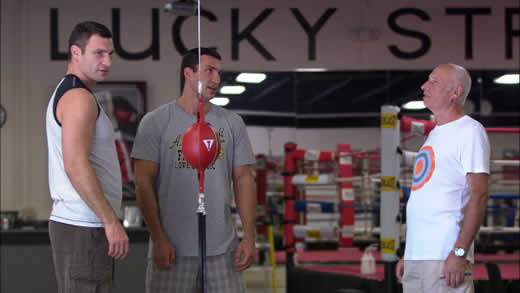 Happy Birthday, Tribeca! 2011 marks the 10th anniversary of the Tribeca Film Festival. After premiering in 2002, a decade later the Tribeca Film Festival is firmly established, strongly focusing on discovering new international and local talent.
Happy Birthday, Tribeca! 2011 marks the 10th anniversary of the Tribeca Film Festival. After premiering in 2002, a decade later the Tribeca Film Festival is firmly established, strongly focusing on discovering new international and local talent.
In addition to its fiction and documentary competition, the festival also presents a number of noteworthy sidebars, amongst them “Spotlight”, a mix of best-of-fests and works about celebrated subjects and characters.
This year’s selection screens 33 films—17 narratives and 16 docs—including the German co-production MAMA AFRICA, a documentary about the late South African singer-songwriter-and civil rights activist Miriam Makeba, by Mika Kaurismaeki. Audiences will also be treated to the World-Premiere of German filmmaker Sebastian Dehnhardt’s KLITSCHKO, about the current heavyweight box champions Vitali and Wladimir Klitschko.
With a slate of award winning historical television documentaries, KLITSCHKO is Dehnhartdt’s debut feature-documentary and a portrayal of the poster boys of boxing. Born and raised in the former Soviet Union, the two brothers hold a doctorate in sports sciences, speak four languages and rejected the advances of US boxing promoter Don King, in favor of staying in Germany to live and train there.
In return, the Germans have adopted the two and regard them as their own. Contrary to their often flamboyant and scandal ridden American counterparts—think Tyson—the two world champions seem grounded, extremely disciplined and hold impressive records over their 15 year professional boxing careers: Vitali counts 42 wins against 2 losses and Wladimir scores 55 wins and 3 losses.
Interviews the brothers, their parents, trainers, and managers reveal interesting information like the fact that Klitschkos’ parents never attend any of their fights, that their father was a military officer, and that they were stationed near Chernobyl in 1986 when the nuclear  reactor melted down. Taking Wladimir on a trip back to their former home on the military base outside of Chernobyl, the younger brother recalls that he played in radioactive water puddles, and that their father is still fighting the aftermath of his service in Chernobyl: cancer.
reactor melted down. Taking Wladimir on a trip back to their former home on the military base outside of Chernobyl, the younger brother recalls that he played in radioactive water puddles, and that their father is still fighting the aftermath of his service in Chernobyl: cancer.
The film chronologically recalls the brothers’ career paths and is coupled with invaluable home movies and scenes from memorable fights (be warned, as some of these are extremely jarring and convey the truly brutal and aggressive nature of this sport). Dehnhardt also follows them home, to training camps and backstage during a fight, as well as all the way away from the ring, back to Kiev, where Vitali—the elder of the two—is actively involved in local politics.
Although filled with scenes from their boxing careers, Dehnhardt’s film is not only for the avid boxing fan, it also speaks to a more general audience as it touches on issues like brotherly love, loyalty, and family values while deconstructing the typical image of the aggressive, agitating, media-hungry athlete.
In the final chapter of the film, Dehnhardt leaves the audience with a powerful and far reaching cliff hanger: will the world-champions ever break their promise to their mother to never fight each other?
For more information on the film KLITSCHKO, please visit: www.klitschko-film.de
For more information on the Tribeca Film Festival 2011, please visit www.tribecafilm.com

